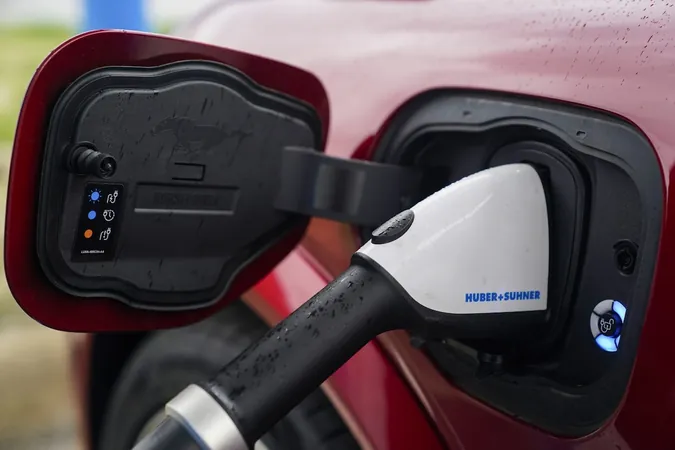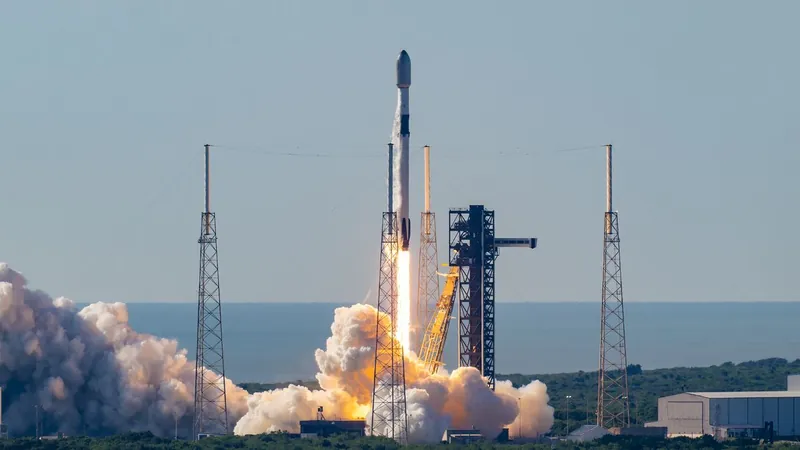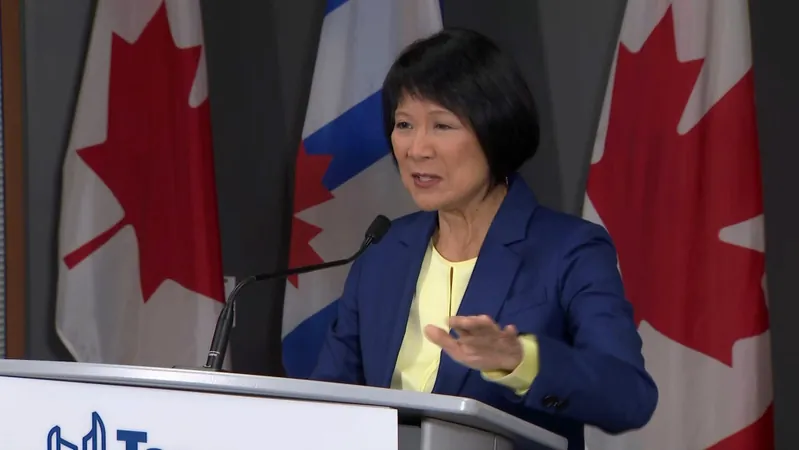
The Battle Over Biden's EV Tax Credit: Trump’s Transition Team Targets Electric Vehicle Subsidies
2024-11-15
Author: Jacques
Introduction
In a significant move that could reshape the electric vehicle (EV) landscape in the U.S., President-elect Donald Trump’s transition team is gearing up to eliminate the $7,500 consumer tax credit for electric vehicle purchases. Two sources familiar with the transition discussions told Reuters that this is part of a broader initiative focused on tax reform.
Impact on Electric Vehicle Transition
If the tax credit is abolished, it could severely hinder the already faltering transition to electric vehicles in America. Notably, representatives from Tesla, the nation’s largest EV manufacturer, have reportedly indicated their support for ending this subsidy during discussions with Trump’s team. Tesla CEO Elon Musk, who has notably backed Trump and is the world’s wealthiest individual, acknowledged in July that while eliminating the subsidy may slightly impact Tesla’s sales, it would be “devastating” for competitors like General Motors.
Market Reaction
Following the news, Tesla’s stock saw a nearly 6% decline, settling at $311.18. Meanwhile, shares for smaller competitors like Rivian and Lucid fell by 14% and 5%, respectively.
The Role of Trump’s Transition Team
The potential repeal of the EV tax credit, a key component of President Joe Biden’s Inflation Reduction Act, is currently under deliberation by a transition team spearheaded by billionaire Harold Hamm, a prominent figure in the oil industry. This team has been convening regularly since Trump’s election victory, including meetings at his Mar-a-Lago estate, where Musk has been frequently seen.
Industry Response
The auto industry is bracing for potential consequences, with advocacy groups like the Alliance for Automotive Innovation urging Congress to retain the tax credits, arguing that they are essential for maintaining the U.S.'s leadership in auto manufacturing. However, Trump’s team hasn't yet formalized its stance on this policy, asserting that the president-elect will fulfill his campaign promises.
Alignment with Trump’s Campaign Rhetoric
Eliminating the EV tax credit aligns with Trump’s campaign rhetoric, which included a commitment to dismantling Biden's “EV mandate.” Trump's transition team views the consumer incentive as an accessible legislative target that could garner widespread agreement among Republicans in Congress.
Potential Legislative Maneuvers
Interestingly, Trump's team may seek to use the funds freed up by eliminating this credit to offset the continuation of previous tax cuts set to expire soon. Moreover, they may leverage a legislative maneuver known as reconciliation to push the broader tax bill through without Democratic votes, a technique successfully employed by Biden for the Inflation Reduction Act.
Support from the Oil and Gas Industry
The oil and gas industry, alongside support from Hamm, is firmly behind the move to abolish EV subsidies. Trump has also emphasized boosting U.S. oil production while aiming to roll back Biden’s clean energy initiatives.
Stock Market Reactions
The stock market reacted strongly, particularly among South Korean battery manufacturers, with LG Energy Solution experiencing a 10% decline and Samsung SDI losing nearly 10% in response to these developments. Analysts note that while removing the subsidy might disadvantage certain EV competitors, Tesla might benefit from diminished competition.
Tesla’s Dominance in EV Market
Recent data indicates that Tesla dominated U.S. EV sales, accounting for nearly half of all electric vehicles sold in the third quarter of this year. Although competitors like GM and Ford are gradually increasing their EV output, they continue to lag behind Tesla, which saw its market share decline from over 80% in early 2020.
Long-term Outlook for Tesla and Rivals
Experts suggest that Tesla could weather a downturn in sales resulting from the loss of subsidies, citing the company's manufacturing efficiencies. However, industry insiders caution that without these incentives, it will be increasingly difficult for rivals to achieve profitability in a market already challenged by cheaper alternatives, predominantly from the aggressively subsidized Chinese EV sector.
Concerns for American Automakers
This situation has led to rising concerns about the future of American automakers as well. Industry experts warn that the end of the subsidy could seriously jeopardize the efforts of U.S. companies to transition to electric vehicles amid a looming competitive threat from China's robust EV manufacturing sector.
Opposition from United Auto Workers Union
The United Auto Workers union, which represents workers at major U.S. automakers, has voiced its opposition to Trump’s ongoing assaults on EV-friendly policies. With car manufacturers like GM projected to face heightened losses if the tax credit is axed, the stakes are increasingly high for both the auto industry and the U.S. workforce.
Conclusion
As the Biden administration sought to address climate change through supportive legislation for electric vehicles, the possibility of a policy reversal under Trump could ignite a fierce clash over the direction of America's green transportation future.









 Brasil (PT)
Brasil (PT)
 Canada (EN)
Canada (EN)
 Chile (ES)
Chile (ES)
 España (ES)
España (ES)
 France (FR)
France (FR)
 Hong Kong (EN)
Hong Kong (EN)
 Italia (IT)
Italia (IT)
 日本 (JA)
日本 (JA)
 Magyarország (HU)
Magyarország (HU)
 Norge (NO)
Norge (NO)
 Polska (PL)
Polska (PL)
 Schweiz (DE)
Schweiz (DE)
 Singapore (EN)
Singapore (EN)
 Sverige (SV)
Sverige (SV)
 Suomi (FI)
Suomi (FI)
 Türkiye (TR)
Türkiye (TR)